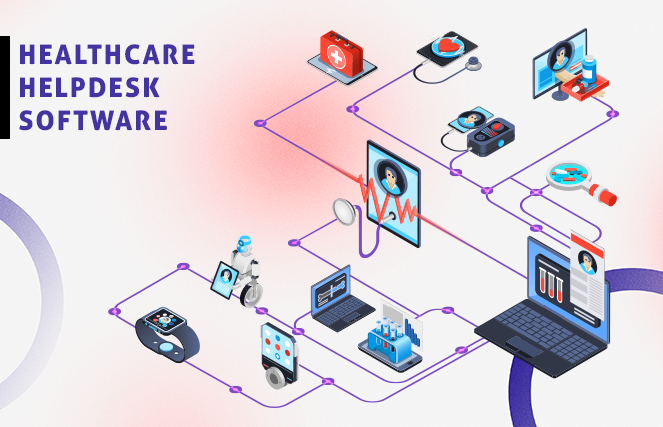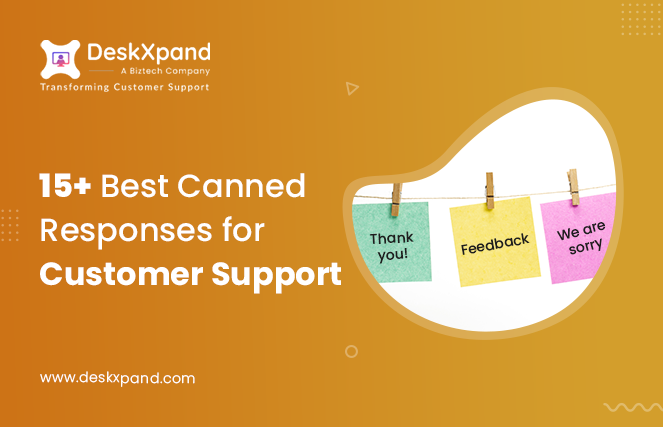Even Richie Rich was fond of automation in daily life. #makelifesimple #Automationisgood pic.twitter.com/qdlSubrfAG
— Vasitum (@Vasitum) March 16, 2021
Helpdesk automation is critical for any organization that wants to sort out customer complaints. It is crucial if you want to respond to the customer in a timely manner to ensure customer satisfaction. It leads to the service executives offering the ideal experience to their customers. It simplifies the way you offer customer support and relaxes your agents from repetitive tasks. It is an essential aspect of providing prime and consistent customer support.
Helpdesk automation enables you to practice:
- Timely resolution
- Efficient communication
- Contextual support
- Efficient workability
- Streamline ticketing process
- Enable appropriate agent assigning
Currently, helpdesk automation is taking over more spheres of customer support than ever before. Nowadays, you can have CRMs integrated with automation and offer a simpler experience to your customers and support executives. In this article, we’re going to talk about helpdesk automation functionalities and tools that have enhanced the working pace and enabled companies to provide a better customer support experience. Let’s get started.
1. Automate Query Registration
In 2023, customers want to use different touchpoints to reach a brand or their support departments. Automating this experience can:
- Reduce the wait time for your customers
- Streamline ticketing at your support end
Depending on your niche, your query registration process can be swiftly handled by a chatbot or a voice bot. You can also provide a questionnaire or an onboarding form. This will help you understand the customer’s psyche, and then you can work to pilot customers towards the right channel seamlessly. Workflow automation with guiding prompts can lead the client efficiently and can enhance the user’s experience while also bringing standardization to the process.
2. Route Customers to the Right Executive
Helpdesk automation ensures that the queries get sorted automatically based on the defined parameters and that they reach the right executive (one with the right expertise.) It empowers your team to analyze escalations and make reasonable adjustments and offers. It helps you route escalations to the appropriate members from the beginning. It’ll save a lot of time for you and your customers.
Sometimes brands are afraid to give escalation response teams leeway to close escalations. But then the complaint rises even more, and it potentially wastes time. This way, queries can be resolved at an initial stage only and won’t require escalation (for most cases.)
3. Automate the Implementation of SLAs
All customer requirements are not similar. Some niche brands receive more complicated queries than others. Especially if you belong to a B2B industry, then things tend to get more complicated. For example, government entities need on-premises solutions for security reasons. Some companies (like healthcare companies) might have compliance-related issues.
Most customer service work on a first-come, first-served model. You cannot prioritize one customer over another. Unless, of course, you have a proper prioritization system in place. This is where SLAs come into the picture. SLAs define the standards of service you expect from a brand.
Automated SLAs can help you prioritize your support tickets based on your existing support bandwidth, the severity of issues, and their complexities. It also includes the penalties that would be charged when the service levels are not achieved. It includes:
- Lifecycle Tracking
- Simplified SLA Target Creation
- Prevent Potential Breaches
- Custom Alerts and Notifications
- Measure SLA Performance
Since we’re talking about SLAs, did you know with DeskXpand, you can enable all the above-mentioned service level agreements? Take a free trial and find out!
4. Dynamic Knowledge Base
A knowledge base is vital for conversing your business. Traditional knowledge bases are often passive and cater to a generic customer base. Automated knowledge bases are more dynamic, and they keep learning with every interaction. You can have a knowledge base with decision tree algorithms that can evaluate, learn, and evolve, making the information accurate.
Customer support usually issues are very high-touch and demanding. And many companies have internal experts who can take care of their problems independently. They need a little help to solve those problems. All they need is maybe a little nudge from your side. This is where you can help them by offering knowledge base options. For example, you can create a support page to post FAQs, other documentation guides, how-to guides, video tutorials, etc.
Besides, a knowledge base is always scalable and always available to help your customers. Plus, it takes a massive load off of your team when it comes to technical questions.
Essential Tip:
If you have a good self-service muscle, it will help your support team run more efficiently. This will let you focus on the complicated questions that need a human to resolve.
5. Automate Feedback
When a customer offers you constructive feedback from surveys, how do you respond? Most brands roll their eyes at the customer’s comments or call them “ridiculous.” But for most businesses, even the comments that seem out of the world are worthy of attention. Most customers feel good if a brand actively considers and acts on their feedback.
Generally, brands face difficulties in collecting feedback. Especially when they use manual processes to collect feedback, automating the feedback would mean that you can actively collect and add feedback from all your customers without putting much effort into it. While closing the query, you can send the feedback mail to your customers automatically.
6. Closing Dead Tickets
A profitable brand is frequently in touch with its customer statistics and data. Some tickets take longer than others to resolve. However, if tickets are left open due to a dormant customer, it will also be measured in or influence this metric. Having a dedicated automated ticketing software that closes tickets if a customer is inactive for a specific timeframe can help provide more accurate customer statistics data.
7. Chatbots
Chatbots are trending these days. Automated chatbots make it easier for customers to get answers on the fly. It also saves a lot of time for the agents as the customers would rather solve their queries on chatbot than raise an issue via social media, calls, or emails.
The only thing to take care of here is picking the right chatbot. As a brand manager, you need to be aware that your customers do not fall prey to too much automation. Your chatbot should be capable of providing an empathetic response.
Not only do you need to have automated responses as a part of your support team, but you also need to make better use of them. Your chatbots are supposed to hold the conversation with your customers until your agents are available. Make sure your chatbots do not hold them for long.
Avoid Customer Service Fails
Let DeskXpand’s automation features like self-service, live chats, SLAs, etc., take care of your customers while you and your team are away.
8. Analytics
Every business operation is spread across several teams. Individually micro-managing each unit requires a larger task force, which increases operational costs—instead, having a holistic view of the entire task force that requires operational costs. Having a holistic view of the entire task force segmented under one dashboard can make the managerial task easier and more cost-effective.
You can determine metrics like resolution rate, tickets generated per day, queries per month, lost business hours, etc. Automated helpdesks will always gauge key variables to update team performance metrics, regularly keeping the team updated on their performance. Often these dashboards are controlled by managers but are visible to team members to assess and improve.
9. Merge Similar Tickets
Many times agents are piled with the same type of queries at the same time. For example, say your brand is facing some technical issue, and all your users are facing the same issue. They’ll contact you as soon as possible. A robust system will allow you to merge these similar tickets and address them all together in one go. You can merge similar tickets and send a common reply to all the tickets at once. Once you merge the tickets, all the secondary tickets are closed, and the messages get sorted in chronological order.
Automation Is Here To Stay: Are You Ready For It?
Industries across all major sectors and niches are acknowledging the pivotal role of helpdesk automation for their support processes. According to a survey:
- 73% of respondents agree that they’ve seen an improvement in customer relationships due to automation.
- 76% of respondents agree that their workforce has benefitted from helpdesk automation.
Brands are anticipating the growth of helpdesk automation and acknowledging its need for their business. DeskXpand comes with certain built-in functionalities that will do away with all redundant tasks. With DeskXpand’s automated ticketing software, you can automate well-orchestrated support workflows, streamline your ticketing system and reduce redundancy in your processes.
We are an ISO27001 certified portal development company with 15+ years of development experience. We build products that you can customize according to your present and future needs. Sign up for your free trial now!







